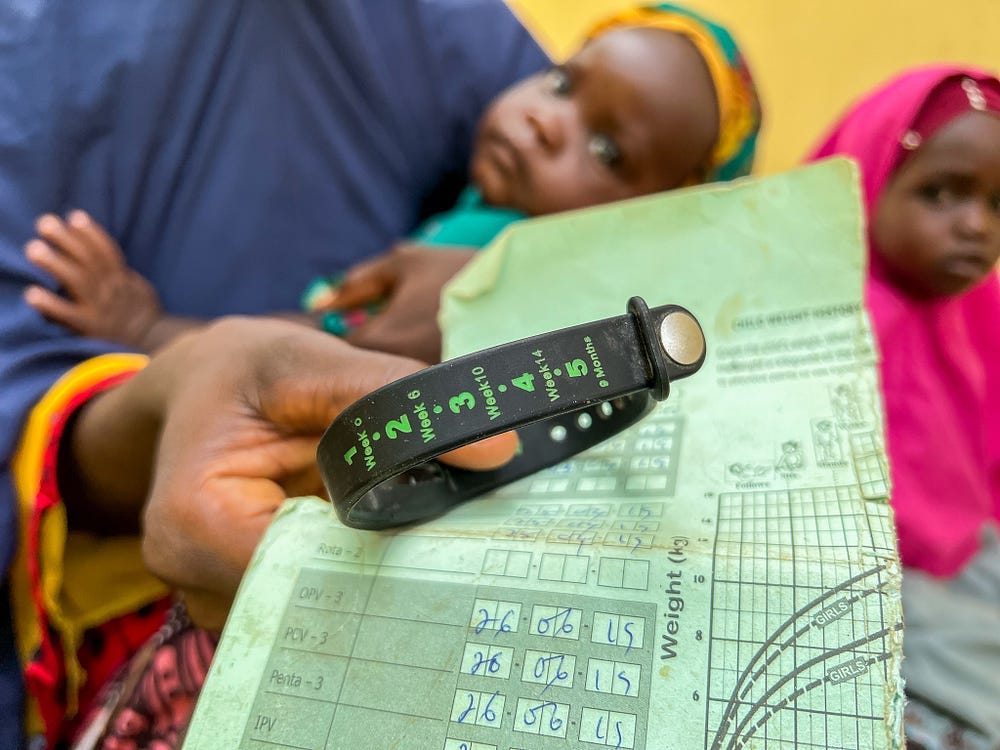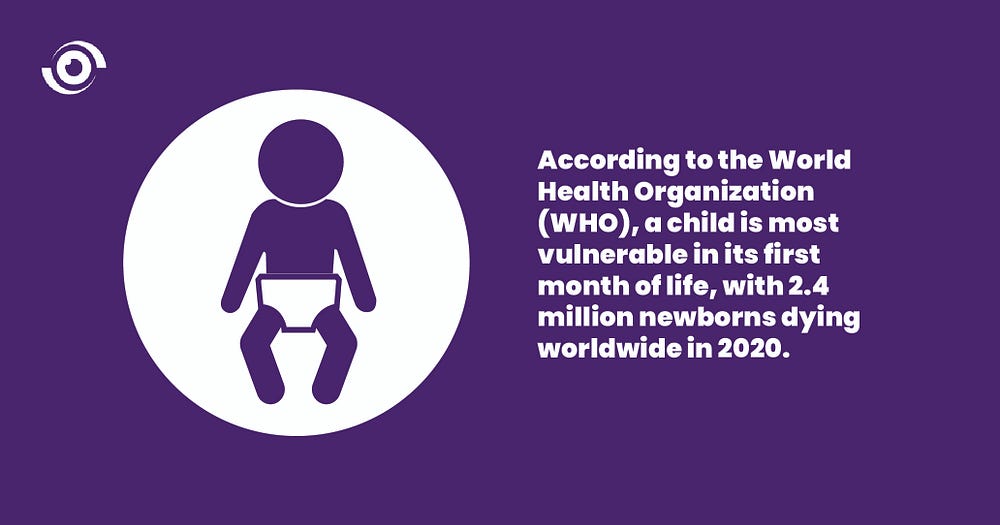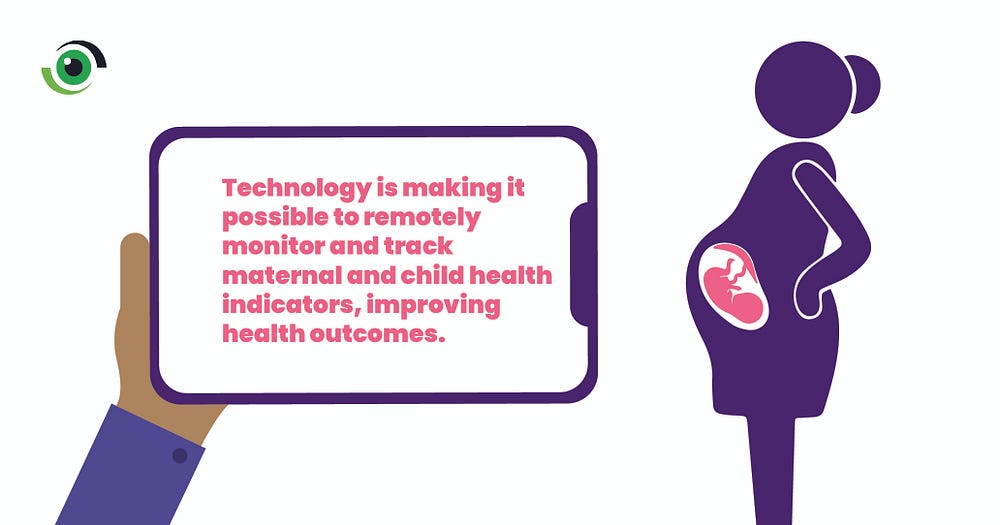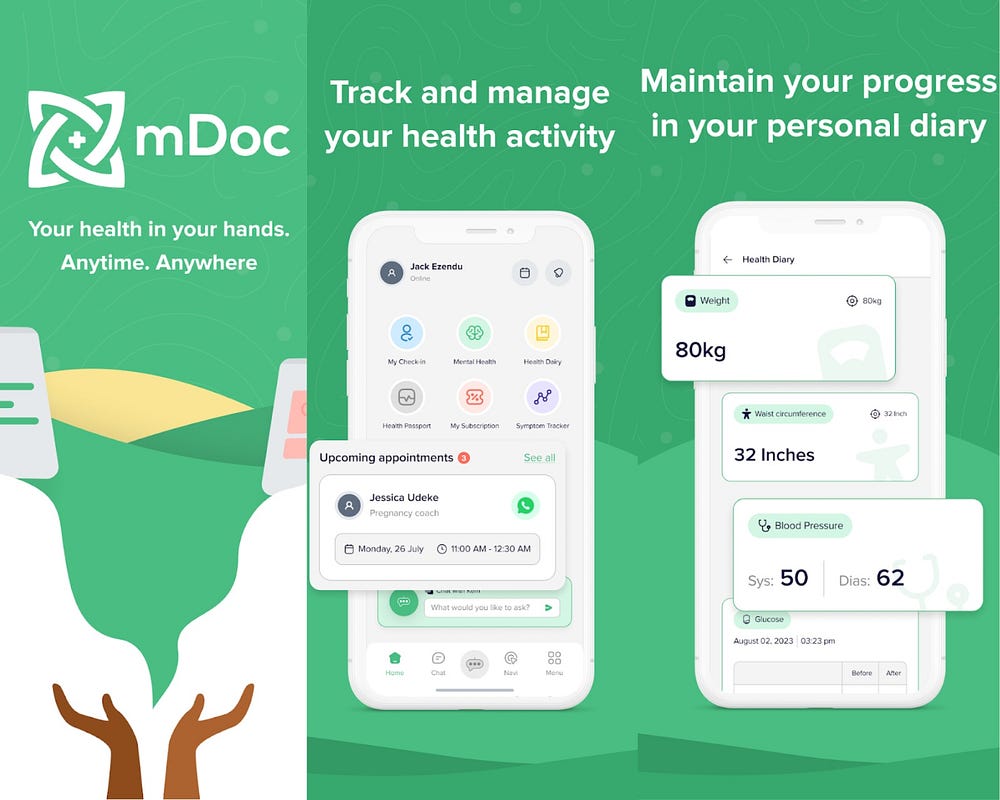The health sector has made significant progress as a result of digital innovations. How can such innovations be used to improve maternal health services in Nigeria?
In the last twenty years, the African continent has witnessed a remarkable surge in the adoption of digital technologies. Numerous countries, including Nigeria, have embraced these innovations to solve the challenges created by geographical constraints and limited resources in accessing and providing important health care, all at a reasonable cost.
This has forced the development of National eHealth policies globally and around the African continent. Nigeria, like many other countries, has a National Health ICT Strategic Framework that aims to provide a comprehensive roadmap for using information and communication technologies (ICT) to improve healthcare delivery and outcomes within the country’s healthcare system.
The emergence of digital health technologies has also opened new avenues for transforming maternal, newborn, and child health (MNCH) outcomes. From remote monitoring to personalised care, digital health innovations hold the promise of revolutionising MNCH worldwide.
Leveraging digital technology for maternal health
Complications during pregnancy, labour, and following birth are among the causes of maternal mortality. Cultural, economic, and geographic constraints all contribute to maternal mortality. Digital health enables remote monitoring of the mothers during pregnancy, delivery, and the postpartum period. Wearable devices and smartphone applications enable healthcare providers to monitor vital signs, foetal movements, and contractions, allowing for early diagnosis and intervention in the event of difficulties. This is especially for women in rural or underserved areas who may have limited access to healthcare facilities. Wearables such as Sydani group’s wristband foetal heart rate monitors and remote blood pressure monitors all assist pregnant women monitor their health at home and share information with medical professionals so they can act as quickly as possible.

Telemedicine, another aspect of digital care, is especially beneficial for pregnant women, since it allows them to get prenatal care consultations remotely, even in local languages. Clafiya, a Nigerian healthtech startup provides in-person maternity care testing, while also facilitating virtual communication between women and doctors. This approach is effective, especially considering challenging doctor-to-patient ratio in Nigeria. This also ensures that even women in rural or underserved areas can get timely advice from healthcare professionals, monitor their pregnancies, and address potential concerns before they become serious.
Mobile health applications are tailored to provide relevant information and resources for expectant mothers, covering topics such as nutrition, prenatal exercises, and childbirth preparation, enhancing maternal health literacy, and promoting healthier pregnancy outcomes. Totohealth is an example of such an application. Totohealth, a Kenyan healthtech startup utilises voice and SMS messages to reduce maternal and infant mortality rates and detect developmental abnormalities at an early stage within the country.
Similarly, the MomConnect initiative in South Africa uses text messages to prompt expectant mothers and recent mothers to attend scheduled appointments, and to deliver educational content regarding maternal and child health matters. Expectant women can enrol by dialling *134*550# from their mobile devices and furnishing fundamental details about their pregnancies.

Digital platforms have also completely revolutionised the traditional practice of caring for mothers. Babymigo is a web-based platform that provides expert-led information, tools, and resources through the community-led platform. CompleteHealth was developed and deployed by mDoc with funding from MSD through MSD for Mothers, the company’s global initiative to create a world where no woman has to die while giving birth. The programme utilises a human health coach and a broader self-care team to support mothers make specific lifestyle modifications from exercise and nutrition to adherence to medication through their maternal health journey.
These technologies can also be especially beneficial in the management of high-risk pregnancies and the monitoring of premature babies. The Embrace Nest, for instance, is a low-cost, portable incubator created for preterm infants, enabling ongoing remote monitoring of vital signs.
Technology, the way to go but…
The many examples demonstrate that technology has the potential to improve maternal and child health outcomes in Nigeria, if adopted, however it is vital to understand that it cannot replace an efficient healthcare system. Therefore, for these technological advancements to be practical, they must be incorporated into the current healthcare system by investing in training healthcare professionals to effectively utilise digital health technologies, ensuring that the benefits of digital health technologies is maximised.

In April 2023, the East African Community (EAC) introduced the 2022 reproductive, maternal, newborn, child, and adolescent health (RMNCAH) digital scorecard for the Zanzibar government. While Nigeria introduced the RMNCAH scorecard in 2013 with state-level scorecards customised to their context and priorities, adopting a digital scorecard similar to Zanzibar will track progress made in the implementation of reproductive, maternal, newborn, child and adolescent health (RMNCAH) against global, continental and regional commitments. This is critical taking into consideration that maternal health is a key component of the Federal Ministry of Health and Social Welfare’s (FMoHSW) recently launched strategic blueprint for Nigeria’s health sector (2023 to 2026). Strategic collaboration and partnerships between the Nigerian government, private sector, and international organisations can facilitate the integration of digital health solutions into existing MNCH programs. Partnerships can help address infrastructural challenges and ensure a cohesive approach to implementing and scaling digital health initiatives.

Building awareness and trust in digital health solutions among communities is essential for successful implementation. Community engagement programmes can involve educating the public on the benefits of telemedicine, mobile apps, and other digital tools, addressing potential concerns, and encouraging widespread adoption.
However, it would be remiss not to acknowledge that variations in access to technology and internet connectivity provide challenges to broad adoption, especially in resource-constrained settings. Efforts are required to close the digital divide and ensure equitable access to digital health solutions. Safeguarding sensitive health information is also paramount in the digital age.
Nigeria’s maternal mortality indices remain a source of concern; leveraging digital technologies might not entirely bridge the maternal health care gap, however, it would go a long way in improving maternal health care in Nigeria.


